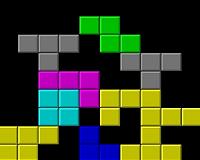 |
San Diego CA (SPX) Nov 16, 2010 New tools inspired by video games are revealing how the brain senses and responds to its surroundings, finds new human and animal research. Taking advantage of state-of-the art technologies to track and mimic real-life environments, these studies show with new detail how the brain navigates, identifies, and remembers a setting. In additional human research, scientists apply these same technological advances to help people who have experienced strokes regain skills. The results were presented at Neuroscience 2010, the annual meeting of the Society for Neuroscience and the world's largest source of emerging news on brain science and health. The new findings show that: + Activity in rats' memory-related brain areas varies with how quickly they move to explore their environments. An optogenetics study suggests that the speed with which an animal - or a person - moves in a setting could alter memories of that setting (Loren Frank, PhD, abstract 100.8, see attached summary). + Older rats appear unable to distinguish similar objects - behavior comparable to that of elderly people, who often have memory and perception troubles. Researchers suggest the rats' actions may be similar to those of young rats with damage in specific brain regions (Sara Burke, PhD, abstract 204.5, see attached summary). + Repeated exercise in a virtual environment helps stroke patients improve arm and hand function, according to a new human study of an interactive video game-based therapy (Sergei Adamovich, PhD, abstract 84.12, see attached summary). Other research findings being discussed at the meeting show: + Studying mice walking in a virtual reality environment enabled researchers to capture brain activity patterns with single nerve cell resolution, more than 100 times more precise than common imaging techniques. The new method allows for new types of experiments on the "place cells" that create the brain's representation of location and space (David Tank, PhD, see attached speaker's summary). "Our brains continuously change as we experience the world," said Veronique Bohbot, PhD, of the Douglas Mental Health University Institute and McGill University, the press conference moderator and an expert in auditory and visual spatial memory, virtual reality, and brain plasticity. "New technologies and research methods now allow researchers to study that change, investigating individual differences in the way people use spatial memory, navigation, and motor function, as well as implications for the use of navigation devices such as GPS. Many potential real-life therapies inspired by video games are already emerging from the virtual world."
Share This Article With Planet Earth
Related Links Society for Neuroscience Space Technology News - Applications and Research
 Tetris Flashback Reduction Effect Not Common To All Game
Tetris Flashback Reduction Effect Not Common To All GameWashington DC (SPX) Nov 12, 2010 The computer game Tetris may have a special ability to reduce flashbacks after viewing traumatic images not shared by other types of computer game, Oxford University scientists have discovered in a series of experiments. In earlier laboratory work the Oxford team showed that playing Tetris after traumatic events could reduce memory flashbacks in healthy volunteers. These are a laboratory m ... read more |
|
| The content herein, unless otherwise known to be public domain, are Copyright 1995-2010 - SpaceDaily. AFP and UPI Wire Stories are copyright Agence France-Presse and United Press International. ESA Portal Reports are copyright European Space Agency. All NASA sourced material is public domain. Additional copyrights may apply in whole or part to other bona fide parties. Advertising does not imply endorsement,agreement or approval of any opinions, statements or information provided by SpaceDaily on any Web page published or hosted by SpaceDaily. Privacy Statement |